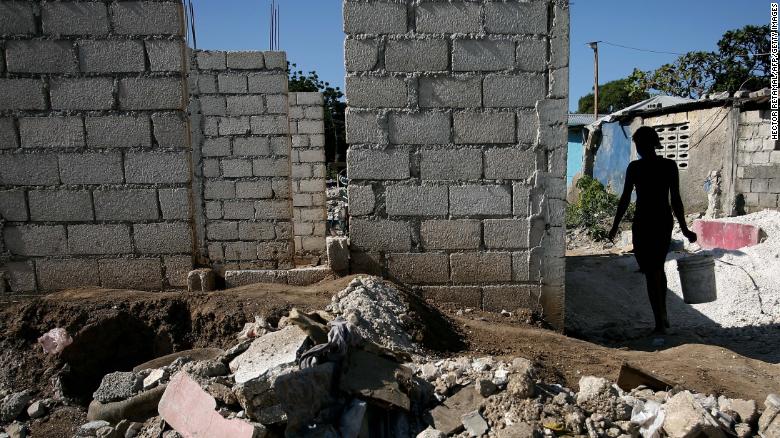
Sexual manhandle of helpless ladies and young ladies by worldwide guide laborers is "endemic" and has been going on for quite a long time, with culprits effortlessly moving around the division undetected, as indicated by a condemning UK government report distributed Tuesday.
The request heard "shocking" stories of help staff sexually misusing the simple individuals they were intended to help, incorporating one destitute young lady in Haiti who was given $1 by a specialist for a nongovernmental association (NGO) and assaulted.
The scorching report by the House of Commons International Development Committee comes after recorded assertions of badgering and sexual unfortunate behavior by representatives of a few best NGOs, including Oxfam and Save the Children, surfaced not long ago. Those assertions incited the Committee to dispatch an investigation into manhandle in the guide division in February.
Tuesday's report observed sexual mishandle and abuse to be "endemic over the worldwide guide segment" and focused at the two local people and staff individuals. Misuse went from undesirable sexual remarks to assault.
"The power irregularity is prevalently, despite the fact that not solely, men manhandling ladies and young ladies," said the report, which cautioned that the cases that had become known were likely simply a "hint of a greater challenge."
A reason for "profound concern and caution" was the simplicity with which people known to be savage or conceivably hazardous could move undetected starting with one guide association then onto the next, the report included.
The panel likewise censured help bunches for neglecting to handle the issue regardless of monitoring reports of mishandle for a considerable length of time. "Over and again, reports of sexual misuse and manhandle by help specialists or potentially peacekeepers have developed, the part has responded, however then the concentration has blurred," the report found.
Seat of the board of trustees, MP Stephen Twigg, revealed to CNN the report set out "the aggregate disappointment over time of no less than 16 years by the guide part to address sexual misuse and manhandle."
He said that in actuality, associations had frequently put "their notoriety in front of ladies, kids and different casualties of sexual misuse and mishandle."
Year of scandal for aid groups
The issue of sexual abuse in the aid sector came to the forefront in February when reports emerged that senior Oxfam staff paid for prostitutes during the 2010 Haiti earthquake relief mission.
Four staff members from the UK-based philanthropy were rejected and three others - including then-nation executive Roland van Hauwermeiren - surrendered after an interior examination concerning the charges at the time. Oxfam was blamed for concealing the discoveries of the examination and censured for neglecting to follow up on charges of mishandle sooner. The philanthropy issued a formal statement of regret in February to Haiti's legislature.
Van Hauwermeiren purportedly told a Belgian daily paper in February that reports on the charges got a few things right, yet in addition contained "a considerable measure of falsehoods and misrepresentations."
Days after the fact it rose that previous Save the Children CEO Justin Forsyth had been blamed for annoying female workers in the vicinity of 2011 and 2015. He went ahead to fill in as representative official chief at UNICEF in 2016 until the point when he surrendered in February.
In reporting his renunciation on Twitter, Forsyth stated: "I apologized energetically at the time and up close and personal. I apologize once more."
The Red Cross likewise declared in February that 21 staff individuals had been rejected or surrendered for "paying for sexual administrations" since 2015.
Oxfam Chair of Trustees Caroline Thomson told CNN in a statement that Tuesday's report made for "incredibly painful reading" for Oxfam and the wider aid sector.
"Oxfam exists to help improve the lives of the world's most vulnerable people; we know we failed to protect vulnerable women in Haiti, and we accept we should have reported more clearly at the time -- for that we are truly sorry," Thomson said. "We have made improvements since 2011 but recognize we have further to go. The Committee is right to challenge all of us in the sector to do better."
Similarly, Save the Children UK's CEO Kevin Watkins said in a statement that the organization had "made mistakes in our own handling of historical sexual harassment complaints from staff in the UK." He added that "although some progress has been made in creating a more respectful working culture, there is a great deal more to do. That's why we have commissioned an independent internal review of our organizational culture."
Victims suffered unwanted pregnancies, diseases
Tuesday's report noticed that sexual unfortunate behavior by help specialists and peacekeepers had a "recorded history extending back about 20 years."
The report related the sexual misuse and mishandle of young ladies between the ages of 13 and 18 by United Nations and help office staff in exile camps in Liberia, Guinea and Sierra Leone in 2001. One casualty said that "a [aid] laborer made me pregnant however now he cleared out me and is wanting to another young lady."
Casualties endured different issues including premature births and introduction to sexually transmitted ailments including HIV/AIDS. The staggering thump on impacts of mishandle incorporated lost instruction and abilities preparing, decreased work openings and social rejection, the report said.
The UN refugee agency announced at the time it was launching a number of measures to combat child abuse.
Meanwhile, with the Syrian civil war in its eighth year, sexual exploitation and abuse by aid workers were "an entrenched feature" in the lives of women and girls there, particularly at aid distribution centers, the report said, citing a study by the UNFPA.
Perpetrators around the world hailed from a broad range of jobs, ranging from guards to drivers and senior managers. They were a mix of local, national and international personnel, the inquiry found.
A "reactive, patchy and sluggish" response to reports of abuse, and a tendency for "whistleblowers rather than perpetrators" to end up feeling penalized, was blamed for the toxic environment.
A "boy's club" culture within organizations also meant sexual harassment and abuse of staff could thrive unchallenged, the report found. In recent months the #MeToo movement had helped shine a light on sexual misconduct, the report said, but the aid sector still had a long way to go to change.
The report called for improved processes around the reporting of sexual abuse, the safeguarding of whistle-blowing systems, and a change in culture at humanitarian organizations.
A global register of aid workers that would "act as one barrier to sexual predators seeking to enter the profession" was suggested as a way forward.
The report also said victims should be included in the policy-making process, and called for the establishment of an independent aid ombudsman to whom victims seeking justice could appeal.
One of the biggest obstacles to progress was a lack of funding, with organizations facing huge pressures to reduce overheads. The report said donors should provide funds for aid groups to implement reporting systems and safeguards against abuse.


No comments:
Post a Comment